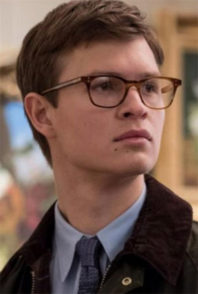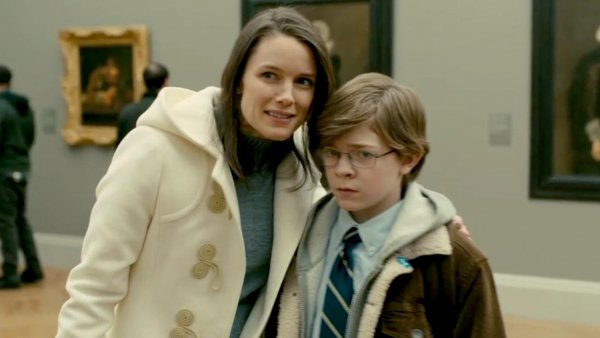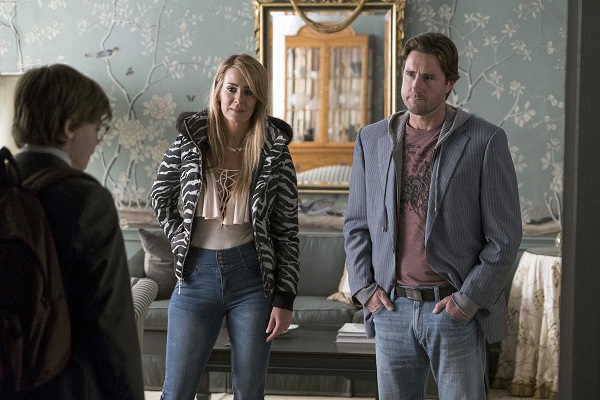
Spoilers Henceforth for ‘The Goldfinch’.
In my household growing up, my Mother was the real bookworm of the family. This is a deeply ironic opening for a piece on John Crowley’s adaptation of Donna Tartt’s The Goldfinch I recognize; however, I begin this way because my Mother firmly adheres to the maxim: “the book is always better than the film.”
Obviously, I’ve come to realize the “always,” is the sticky phrasing in this sentence. But what I think such a statement really captures about novel to film adaptations is the difficult challenge it is to take someone’s prose and turn it into a visual medium. How do you capture the rich cadences, the breathless pauses, the dizzying way a particular word may make your mind spin? It’s not an impossible task, but it is a difficult one. As much as we may consider film through its own grammatical language, a hard cut and a period are not exactly a one to one translation.
Few films better exemplify this conundrum than Crawley’s Brooklyn follow-up, which recently premiered at TIFF to a tepid reception (and that’s probably being generous), and followed that up with one of the worst opening weekends of all time. The Goldfinch is a bizarre disaster, and one that alludes to the many problems inherent to cinematic adaptations of popular novels. If there is a do and don’t playbook to literary adaptation, then Crawley’s latest film may provide an excellent example of the latter.
Full disclosure: I have not read The Goldfinch. Here is what I know about Donna Tartt’s novel from cursory perusing of reviews and synopses. One, it is Pulitzer Prize winning novel. Two, it sold a metric ton of copies. Three, it is equally revered as it is hated; occupying both poles of a spectrum where there is no middle ground. Four, it is over 750 pages in length.
That last point is probably the most important for understanding the struggles of The Goldfinch the film. Dickensian is the term frequently associated with Tartt’s novel. In a sense, her novel evokes the spirit of works such as Nicholas Nickelby and Great Expectations, in her creation of a similar sort of long-winded but poignant portrayal of poor social conditions, as seen through the eyes of orphans thrust into situations they may not entirely be ready for. The most common form of visual adaptation for Dickens is, I would surmise, not actually the stand-alone film, but rather, is the BBC style mini-series. This way one could have all the time they could possibly need to really dig into the crevices of Dicken’s story. The world surrounding the events in motion is equally as fascinating as those events, if not more so.
Yet, by choosing to make The Goldfinch a single two-and-a-half-hour film, that ability to explore that world is largely removed. There’s a lot that occurs in this story. After an explosion at the Museum of Modern Art kills Theodore “Theo” Decker’s (Ansel Elgort) mother, he is sent to briefly live with the Barbours, a wealthy New York family whose socialite matriarch Samantha (Nicole Kidman) takes a shine to him. That’s all in the past though. In the present, Theo has locked himself in a Dutch hotel room where he contemplates suicide. Somehow, these two timelines are going to collide.
But this is only the film’s introductory stages. There is still a lot to get to including: the return of deadbeat father Luke Wilson, Sarah Paulson as his ex-prostitue second wife who does not like Theo, the duelling impressions of Finn Wolfhard and Aneurin Barnard, a bizarre sub-plot involving Willa Fitzgerald, and a madcap chase through the art underworld. That’s a solid chunk of plot points in The Goldfinch, but it is certainly not a comprehensive summary.
Part of the disconnect here stems from the fact that there is truly so much that is going on. When you’re reading a novel of considerable length with innumerable events, the pacing is different. There is more time to make these events seem less like they’re bizarre things that merely happen, and more time to enrich the reader in the world of the novel. Simply having to describe a character, from their clothes to their hair colour, takes far more time than a simple shot of a character does. This is partially why most Dickensian adaptations are BBC mini-series that often reach many hours in length.
Part of the disconnect, however, stems from the fact that all the time in the world would not have saved some Crowley’s aesthetic decision making. The weird feeling I was having watching The Goldfinch was that it felt like I wasn’t really watching the film, so much as it was merely progressing in front of my eyes. Roger Deakins crafts some beautiful images, but they’re subservient to Crowley’s determination to get to the next plot checkpoint.
The most befuddling technical choice is the editing structure. Remember how Bohemian Rhapsody briefly became a meme because of that one scene where the film cuts a million times for no reason? Crowley tries to pull a similar trick with The Goldfinch. A simple conversation between a young Theo (Oakes Fegley) and a young Pippa (Aimee Laurence), devolves into a series of frenetic cuts. I liken this effect to the cinematic equivalent to a stage magician’s handwaving, whereby the film attempts to misdirect you into thinking that something is happening, when in reality, nothing is actually happening.
What’s this about a young Theo and a young Pippa, you ask? The non-linear structure of The Goldfinch means that large segments of the film occur during Theo’s adolescence. There’s a young Theo, a young Pippa, a young version of every child character. For those who loathe child actors, this is your worst nightmare.
For the most part I try to avoid putting child performances on blast, because they’re kids, and they’re learning, and they are truly trying their best. But we have to talk about Finn Wolfhard’s accent in The Goldfinch. Finn Wolfhard, of Stranger Things fame, plays Boris, a Ukrainian boy from difficult family conditions who Theo befriends after his exile to the Nevada desert. Wolfhard’s accent is a peculiar choice. It sounds as if he’s doing an impression of his elder counterpart Aneurin Bernard’s version of a Russian accent, a phenomenon that is doubly strange when you realize that Bernard is, cyclically, doing an impression of Wolfhard’s accent. I do sincerely believe Wolfhard is doing his admirable best; however, it’s a really cruel directorial decision to ask a sixteen-year-old to do an accent of that nature. To do so, is putting him squarely in front of the firing squad.
With the adult actors, however, I feel less constraint in discussing performances. Ansel Elgort plays the elder Theo. It’s hard to pin down the performance in general, because the character is written in a way that things merely seem to happen to him. Willa Fitzgerald (of the criminally underrated Scream TV series fame) is surprisingly good in my opinion as his marriage of convenience interest, as is Paulson in her turn as the savvy stepmother. Otherwise, most of the adults seem to follow Elgort’s lead in terms of merely being acted upon instead of being agents of change.
This connects back to my earlier feeling that The Goldfinch isn’t a film to be watched, but a film that is progressing in front of its audience irregardless of their focus. David Sims of The Atlantic offers a similar take in his argument that, “Deakins’ photography is…pretty, but static, something to contemplate rather than something propulsive.” Crowley’s film exists in a liminal state that is much too long to properly have a sense of pace, but is far too short to properly get into the crevices of the story. In attempting to settle for both worlds, what you end up with is a film that seems to merely exist.
One scene that offers a particularly fascinating choice I picked up on right away involves adult Theo and adult Pippa (Ashleigh Cummings) having a discussion over dinner following a trip to see a classical music documentary. Pippa, a former musical prodigy that was forced to give up the pursuit following her injuries sustained in the same explosion Theo was in, is sobbing, informing Theo that she’s too broken to be saved. The restaurant seems to be a bit of an upscale eatery, the kind of place where a bottle of wine is a necessity and the serving staff is more than happy to help you find the right pairing for your meal. The two are softly lit at a table near a window, suggesting romance, a suggestion bittersweetly dissonant from the actual conversation.
During this scene, there’s a song diegetically playing in the background. The song is “Apocalypse” by Cigarettes After Sex, a band known for its ambient, dreamy, shoegaze sound. I found this to be a strange choice because one, Cigarettes After Sex does not seem like it would be the ambient background music for such a restaurant, and two, because Cigarettes After Sex is not the ideal music for such a locale, it must therefore be a conscious choice on the part of the filmmakers. It’s not exactly clear why this is. Is it because the lyrics offer vaguely similar illusions to things that happen to Pippa and Theo? Is it because the song is vaguely romantic in a bittersweet way like most of the band’s discogrpahy? Is it because the filmmakers believe such a song simply offers a mood in the background?
The answer is unclear. This scene stands out to me though, because for one second The Goldfinch has a little bit of ambiguity found in its details. If Crowley were to offer overwhelming details found within the mis-en-scene, the effect would likely be twofold. On one hand, the world would be more lived in. On the other hand, emotionally resonant clues would offer more for the viewer to get out of each scene. For a second, I was actually engaged in the proceedings. And even then, my engagement level is not universal, as it was mostly predicated on my recognition of a particular musical group I enjoy listening to.
All films though would better served by providing better visual and auditory information. Thus, what I’m essentially arguing is that if The Goldfinch were better, it would be better. There is no denying that adapting Tartt’s novel is a difficult task; however, I certainly think that there is a better adaptation out there. It’s tough because it’s a source material that demands propulsion and meditation. A deft hand would be able to find the balance between the two poles.
By focusing on the former, however, Crowley renders the strange into the absurd. The events that occur seem wholly illogical when presented in such a matter of fact way. Ironically, in trying to make The Goldfinch as palatable to as wide an audience as possible, Crowley actually creates more of a mess than he would’ve had if he had leaned into the absurdities.
The book may not always be better than the film, but in some cases, this certainly proves true. Strong adaptations, however, succeed not because of their faithfulness to the plot and structure, but rather, because of their infusion of the original’s spirit into the adaptation. Simply reiterating the plot of a massive Dickensian novel, likely leaves you with an absurd and unsalvageable mess. In doing so, you may not actually be grasping the original text at all.
- Release Date: 9/8/2019






